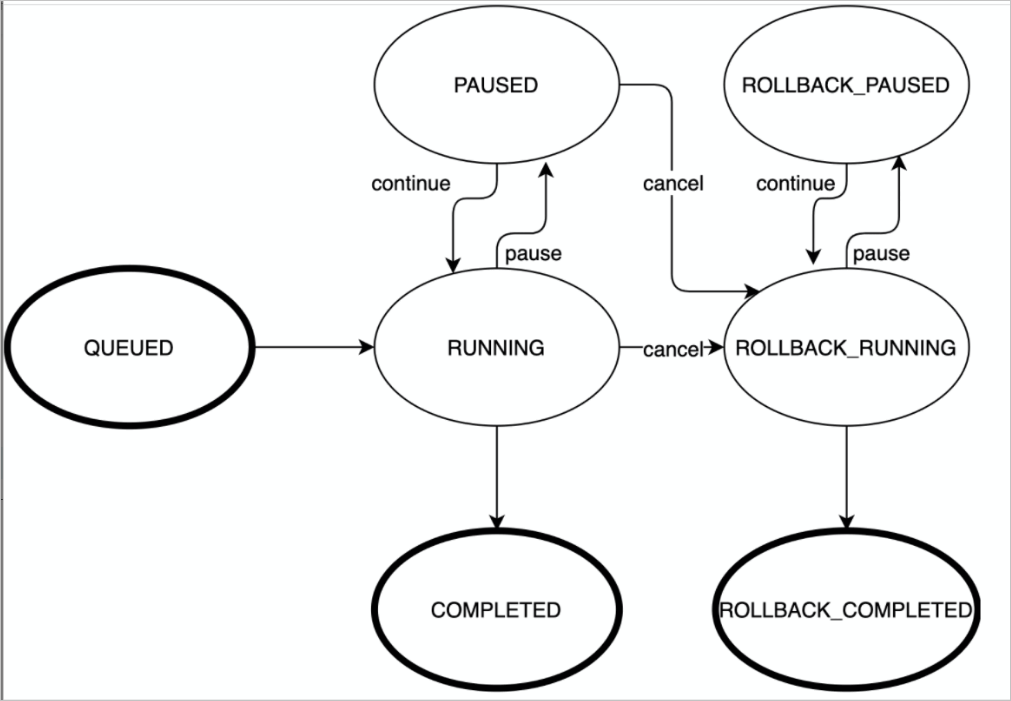A DDL statement is executed as a DDL job in a PolarDB-X instance. You can execute the SHOW DDL statement to view DDL jobs in the PolarDB-X instance.
Syntax
SHOW [FULL] DDL;Examples
SHOW DDL\G;
*************************** 1. row ***************************
JOB_ID: 1359947811109470208
OBJECT_SCHEMA: d1
OBJECT_NAME: t2
ENGINE: DAG
DDL_TYPE: ALTER_TABLE
STATE: PAUSED
BACKFILL_PROGRESS: 0%
PHY_DDL_PROGRESS: 100%
PROGRESS: 20%
START_TIME: 2021-08-05 11:01:25.291
END_TIME: 2021-08-05 11:02:27.020
ELAPSED_TIME(MS): 61729
PHY_PROCESS:
CANCELABLE: true
1 row in set (0.03 sec)Response parameters
| Parameter | Description |
|---|---|
| JOB_ID | The unique ID of the DDL job. The ID is a 64-bit signed integer of the LONG data type. |
| OBJECT_SCHEMA | The schema name of the object on which the DDL job is performed. |
| OBJECT_NAME | The name of the object on which the DDL job is performed. For example, the value can be the name of the table on which the DDL statement is executed. |
| ENGINE | The engine type for the DDL job. Default value: DAG. |
| DDL_TYPE | The type of the DDL job. Example: CREATE_TABLE.
|
| STATE | The state of the DDL job. For more information, see DDL job status. |
| BACKFILL_PROGRESS | The progress of data backfilling in the DDL job. |
| PHY_DDL_PROGRESS | The progress of batch physical DDL statements that are being executed in the DDL job. |
| PROGRESS | The progress of the DDL job. |
| START_TIME | The start time of the DDL job. |
| END_TIME | The end time of the DDL job. |
| ELAPSED_TIME(MS) | The time elapsed after the DDL job is started. Unit: milliseconds. |
| PHY_PROCESS | The state of physical DDL statements that are being executed. |
| CANCELABLE | Indicates whether the DDL job can be canceled by executing the CANCEL DDL statement.
|
DDL job status
The STATE field returned by the SHOW DDL statement indicates the state of the DDL job. The following figure shows the state changes.

In most cases, the state of a DDL job changes in the following sequence: QUEUED, RUNNING, and COMPLETED.
If an exception occurs, a DDL job may be automatically rolled back. In this case,
the state of the DDL job changes in the following sequence: QUEUED, RUNNING, ROLLBACK_RUNNING, and ROLLBACK_COMPLETED.